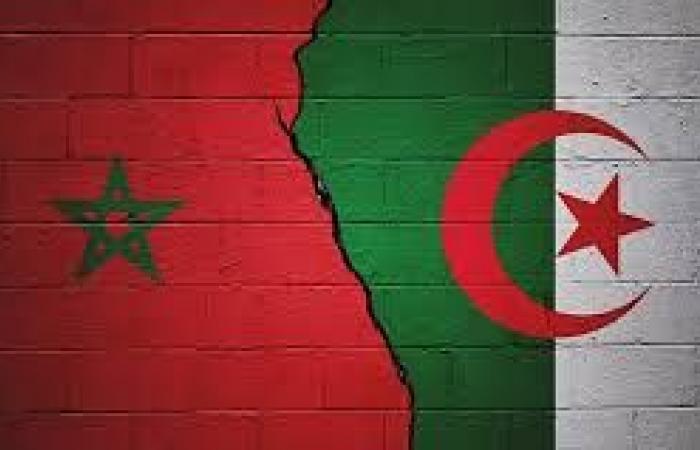
Recently, France took a step forward by effectively supporting the Moroccan character of Western Sahara, a territory claimed by Morocco for decades and whose annexation is contested by the Polisario Front, supported by Algeria. This gesture by Paris triggered a shock wave in the already fragile relations between France and Algeria, revealing an increasingly visible divide in northern Africa.
With this support for Morocco, France seeks above all to consolidate its links with a strategic ally, but in return, it exposes itself to the rejection of Algeria, a historic partner and regional power. This “yes” pronounced in favor of Rabat resonates as an implicit “no” specified in Algiers. But beyond the simple game of alliances, what are the real issues and prospects of this decision for the region?
Since Algeria's independence in 1962, relations with the former colonial power have experienced ups and downs, marked by painful memories and persistent distrust. Despite attempts at rapprochement, political and historical differences regularly resurface, making each step forward a fragile and provisional step. France's decision to officially support Morocco in the Western Sahara issue has revived this mistrust, to the point of destroying hopes of reconciliation.
For Algeria, which wants to be the spokesperson for the right of peoples to self-determination, this recognition is seen as an affront. It endangers the diplomatic balance in a region where France had tried to maintain a facade of neutrality. Now, Algiers sees this decision as proof that France is prioritizing its strategic and economic interests over regional stability.
The Western Sahara conflict is one of the last vestiges of African decolonization, an issue that the UN still considers unresolved. For decades, the Polisario Front, supported by Algeria, has demanded the independence of Western Sahara in the face of Morocco's desire for annexation. France, by supporting Rabat, is thus taking part in an extremely sensitive issue and complicates the diplomatic situation.
Far from pacifying the region, this position risks further polarizing the Maghreb and reinforcing tensions between Algeria and Morocco. The latter feels reinforced in his position, while Algiers considers this support as a provocation and, in his eyes, illegitimate support. By choosing to side with Rabat, Paris is taking the risk of inflaming an issue that continues to divide the region and undermine the Arab Maghreb Union (UMA), although it was founded to promote cooperation between the Maghreb countries.
This decision has repercussions that go beyond the Maghreb. It leaves the field open to new international players ready to fill the void left by a France which is gradually losing the influence it once held in this region. Russia, China, the United States, Turkey, the United Arab Emirates and even Israel see this unstable context as an opportunity to strengthen their presence and expand their influence.
Algeria, in particular, could be tempted to strengthen its alliances with partners who offer it support without ambivalence. By turning to Russia or China, Algiers could counterbalance the weight of France and Morocco, but at what cost? Indeed, this strategic alignment risks further internationalizing an already complex conflict, where each power defends its own interests.
The danger for the Maghreb lies in this divide which is becoming more and more visible. By supporting Morocco, France pushes Algiers into the arms of other allies and encourages a rivalry that weakens the entire region. The Maghreb is already marked by the absence of regional cooperation, the AMU having been paralyzed for decades by Algerian-Moroccan tensions. This new episode risks further blocking trade and freezing the positions of each country.
The problem is that this situation does not really benefit either the populations or the stability of the region. The nations of the Maghreb, despite their differences, share common interests: security, economic development and stability. But these objectives remain unattainable as long as tensions continue to dominate regional diplomacy, and as long as the great powers have their share in stoking rivalries.
France's decision to support Morocco in the Western Sahara issue risks marking a point of no return in its relations with Algeria. By favoring circumstantial interests, Paris is turning away from the principles of neutrality and justice which are nevertheless essential to easing tensions in the Maghreb. For its part, Algeria could seek to strengthen its external alliances, in a dynamic which risks further embracing northern Africa.
Faced with this imbroglio, the question remains open: will the Maghreb be able to transcend rivalries and face external pressures to build a future based on cooperation and respect for the rights of peoples? For France, the question is whether it is ready to favor a balanced approach, which takes into account the legitimate aspirations of all the countries in the region, or whether it continues to rely on alliances which, although strategic in the short term , endanger lasting peace.
France's recognition of the Moroccan nature of Western Sahara marks a new turning point in Franco-Algerian relations, already marked by historical complexity and political rivalries. This choice, by supporting Morocco on such a sensitive issue, accentuates a regional polarization which is no longer limited to the Maghreb: it further opens North Africa to the influences of external powers, ready to exploit the fractures for their strategic interests.
France and Algeria, faced with this impasse, each have crucial decisions to make for the future of their relations and for regional stability. For France, it is a question of not giving in to a short-term policy, focused only on its one-off alliances to the detriment of the principles of justice and respect for the rights of peoples. For Algeria, the challenge is to find new partners, strengthen its African and international alliances, and maintain its role in supporting self-determination rights.
This file highlights the fragility of diplomatic balances in the Maghreb, but also the importance of authentic dialogue. France and Algeria, to avoid becoming hostages to a painful past or to the competing interests of distant powers, must explore more sincere avenues of cooperation based on mutual respect. At a time when borders and sovereignty are contested on all sides, the Maghreb, rich in its history and its human and natural resources, cannot be a playground for external powers; it must once again become a space of dialogue and stability, for itself and for Africa as a whole.
Thus, the question remains open: will France and Algeria be able to transcend divisions and build a common vision for the future? The choice of appeasement and cooperation, to be truly beneficial, must place respect for the rights of peoples at the heart of relations, far from ephemeral strategic calculations.
“Great powers do not see borders as lines of separation, but as lines of play where each move redefines the balance. The real challenge for nations is to choose between being pawns or players. »
Dr A. Boumezrag





